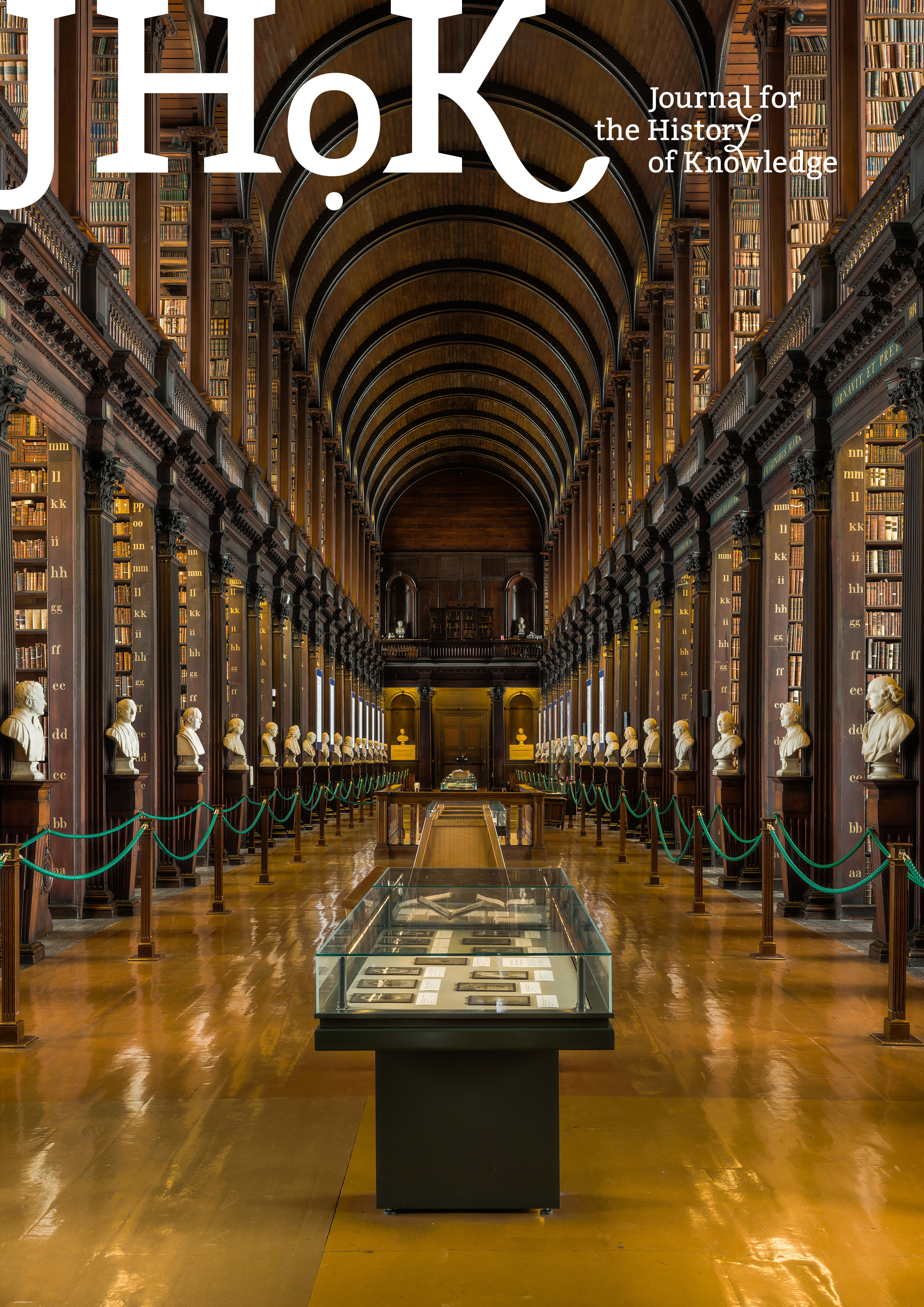Introduction
Situated Nature: Field Collecting and Local Knowledge in the Nineteenth Century
DOI:
https://doi.org/10.55283/jhk.11379Keywords:
Nineteenth Century, Field, Local knowledge, Natural knowledge, Collecting Practices, CollectionsAbstract
The naturalist’s field is often taken as a romanticized place of awe and wonder or a side activity to scientific work. This special issue seeks to establish the field as neither the origin nor the end of knowledge production. By situating nature, we seek to escape a romanticized conception of fieldwork and argue that the field is not a simple backdrop to knowledge production, nor one step in an idealized scientific protocol. Rather, the field is a space co-produced from entangled interactions between society and environment. Paying specific attention to field practices of collecting opens a critical view of narratives of idealized hardship of exploration in distant terrains. By reconnecting the history of natural history to the contingencies and agencies of fieldwork, we contribute to the contextualization of the production of knowledge about nature. Working towards better political and social definitions and delineations of the field is essential to addressing these gaps in the narrative, particularly in the long nineteenth century when nationalist, imperial and colonial rationales infused field practices.
The question of the field is also that of the conditions of amassing collections. At a time of environmental crisis, when museums and collections are set up as protective temples of biodiversity, it seems crucial to question the conditions of the making of their collections and to place them in their contexts and histories. Bringing to light the political and social implications of collecting and collections, we argue, encourages serious reflection on the non-neutrality of museums and collections.
Downloads
Downloads
Published
Issue
Section
License
Copyright (c) 2022 Deborah Dubald, Catarina Madruga

This work is licensed under a Creative Commons Attribution 4.0 International License.


